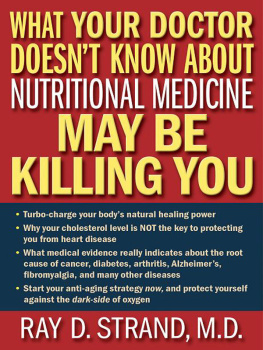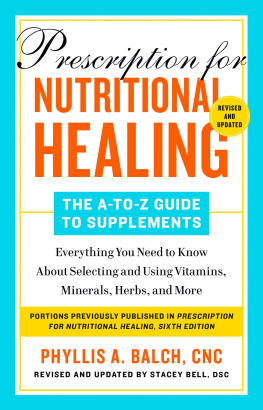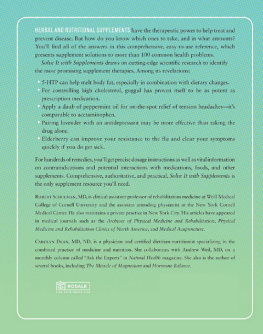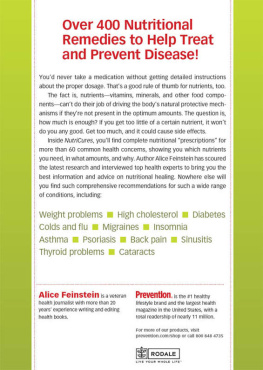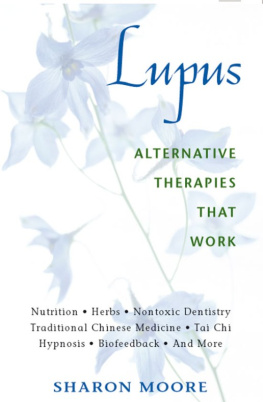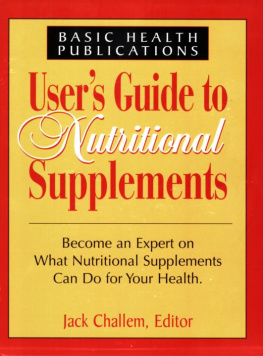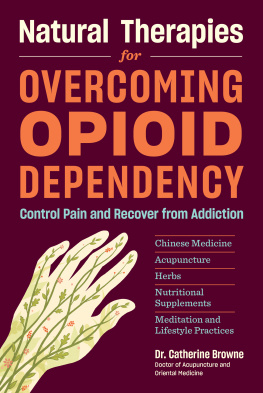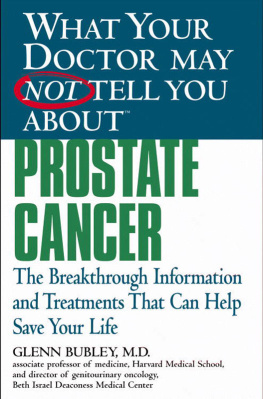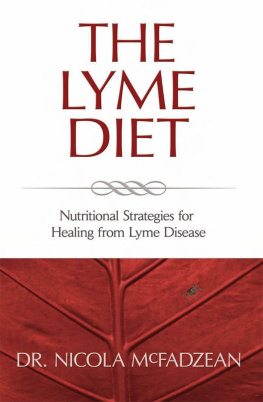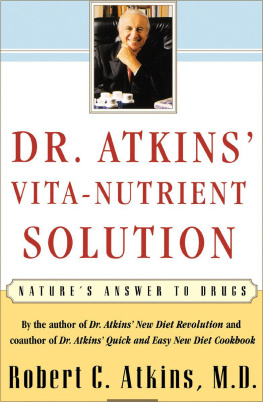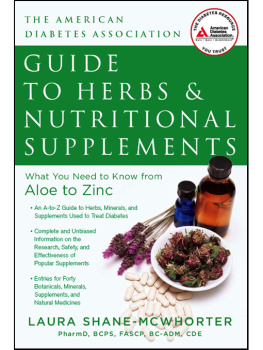WHAT YOUR DOCTOR DOESNT KNOW ABOUT
NUTRITIONAL MEDICINE MAY BE KILLING YOU
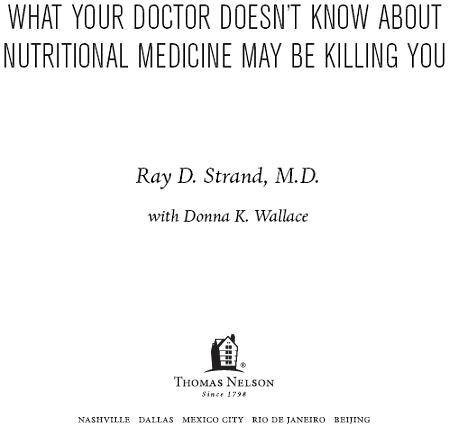
Every effort has been made to make this book as accurate as possible. The purpose of this book is to educate. It is a review ofscientific evidence that is presented for informational purposes. No individual should use the information in this book for self-diagnosis,treatment, or justification in accepting or declining any medical therapy for any health problems or diseases. Any applicationof the advice herein is at the readers own discretion and risk. Therefore, any individual who has a specific health problem or whois taking medications must first seek advice from his or her personal physician or health-care provider before starting a nutrition program.The author and Thomas Nelson Publishers, Inc., shall have neither liability nor responsibility to any person or entity withrespect to loss, damage, or injury caused or alleged to be caused directly or indirectly by the information contained in this book. Weassume no responsibility for errors, inaccuracies, omissions, or any inconsistency herein. Any slights of people, places, or organizationsare unintentional.
2002 by Ray D. Strand
All rights reserved. No portion of this book may be reproduced, stored in a retrieval system, or transmitted in any form or by any meanselectronic, mechanical, photocopy, recording, scanning, or otherexcept for brief quotations in critical reviews or articles, without the prior written permission of the publisher.
Published in Nashville, Tennessee, by Thomas Nelson. Thomas Nelson is a registered trademark of Thomas Nelson, Inc.
Thomas Nelson, Inc. titles may be purchased in bulk for educational, business, fund-raising, or sales promotional use. For information, please e-mail SpecialMarkets@ThomasNelson.com.
Scripture quotations are from the NEW AMERICAN STANDARD BIBLE, The Lockman Foundation 1960, 1962, 1963, 1968, 1971, 1972, 1973, 1975, 1977. Used by permission.
Library of Congress Cataloging-in-Publication Data
Strand, Ray D.
What your doctor doesnt know about nutritional medicine may be killing you / by Ray D. Strand.
p. cm.
ISBN 978-0-7852-6486-6 (hardcover)
ISBN 978-0-7852-8883-1 (trade paper)
1. Dietary supplementsPopular works. 2. Diet in diseasePopular works. 3. Alternative medicinePopular works.
[DNLM: 1. Dietary SupplementsPopular Works. 2. Complementary TherapiesPopular Works. 3. Diet TherapyPopular Works. QU 145.5 S897w 2002] I. Title.
RM258.5 .S77 2002
2002007202
Printed in the United States of America
08 09 10 11 12 QW 9 8 7 6 5
This book is written with deep humility and respect for the Great Physician.

It is with great awe and appreciation that I dedicate this book to the most beautiful display of Gods handiwork: my wife, Elizabeth.
Contents
Beloved, I pray that in all respects you may prosper and be in good health, just as your soul prospers.
3 JOHN 2
FIRST, THERE ARE NO WORDS TO ADEQUATELY ACKNOWLEDGE THE wonderful grace that my Redeemer has given me. He is the Great Physician, and He is the one who truly heals. Each day I am astounded by the knowledge of His handiwork as I learn more about the bodys great ability to protect and heal itself.
There are many individuals who have come together to make this book a reality and whom I greatly appreciate. I express my deepest thanks to my agent, Kathryn Helmers, who has guided me faithfully through this entire project; to my publishers, Victor Oliver and Michael Hyatt at Thomas Nelson, who recognized the potentially life-changing health concepts presented in this book; to Kristen Lucas, my managing editor, whose attention to the details of this project made it all happen; to Alice Crider, for her careful creation of the index.
I want to give a special thanks to my collaborator, Donna Wallace, whose wonderful talent and influence is seen throughout this book. Without her energy and guidance, this project would never have seen completion.
My entire clinic staff has been wonderful. I need especially to thank my two nurse practitioners, Paulette Nankivel and Melissa Aberle, for graciously allowing me the extra time necessary to write this book. I must also thank Karmen Thompson and Leone Young, who helped me gather the volumes of medical research that provide the facts and foundation of this work.
I want especially to thank Bruce Nygren, whose support actually gave me the opportunity to write this book. My prayers go out to Bruce, who lost his lovely wife, Racinda, during the writing of this book.
Words cannot express the love and support I have received from my wife, Elizabeth, whose encouragement has buoyed me up during the long hours of research and writing. And to my children, Donny, Nick, and Sarah, who are all grown but offer continual support and encouragement: thank you.
PHYSICIANS ARE DISEASE-ORIENTED. WE STUDY DISEASE. WE LOOK for disease. We are pharmaceutically trained to treat disease. And in order to do so, we know our drugs. In medical school we study pharmacology and learn how the body absorbs each drug, and when and how the body excretes it. We know which drugs disrupt certain chemical pathways to create a therapeutic effect. We learn the side-effect profiles of drugs, and we work carefully to balance the benefits against any potential danger.
Physicians know their drugs and dont hesitate to prescribe them. Consider for a moment the number of drugs that our patients are taking for high blood pressure, elevated cholesterol, diabetes mellitus, arthritis, heart disease, and depression, to name just a few. As a result of the discovery and use of antibiotics in the war against infectious disease, our philosophy in medicine has become: attack disease.
The medical community has carried this aggressive attitude and approach into the twenty-first century in the attempt to treat all the various chronic degenerative diseases. A study estimates that in 1997, pharmacies filled more than 2.5 billion retail prescriptions in the United States alone. The sale of prescription drugs has more than doubled in just the past eight years!
In 1990 Americans spent $37.7 billion on prescriptions. In 1997 that spending increased to $78.9 billion. Prescription drugs have been the fastest-growing portion of health-care costs over the past decade, rising at the rate of about 17 percent per year (well above the average rate of inflation). Physicians and insurance companies have placed all their hopes in drugs as the way to approach and hopefully slow down this epidemic of chronic degenerative diseasemuch to the delight of the pharmaceutical industry. Yeswe love our drugs.
I have not met a person yet who does not want to have excellent health. Most of us assume that we always will. But the truth is that many of us (doctors included!) are losing our health each day. I know, because health care is my job. Every day of my career involves informing patients that they have lost their health in one aspect or another. One patient may have developed diabetes or maybe degenerative arthritis. Another patient may have just suffered a heart attack or stroke. Still another may have to be told that he has metastatic cancer and has only a few months to live. Everyone desires to maintain or regain his health, but he does not always know what he needs to do to achieve that goal.
Because physicians are disease- and drug-oriented, we spend most of our time and effort trying to identify a disease process so we can prescribe a drug or treatment plan for our patient. Even Jesus made the statement, It is not those who are healthy who need a physician, but those who are sick.
Next page
